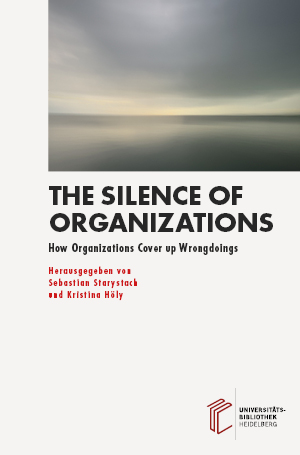How to Cite
License (Chapter)

This work is licensed under a Creative Commons Attribution-NonCommercial-ShareAlike 4.0 International License.
Identifiers (Book)
Published
Silence in Organizations – What We Need to Know, What We Know, and What We Don't Know
Abstract: The conference from which this book arose showed that organizational members’ withholding of ideas, questions, opinions, and concerns is an issue in many contexts and is approached from diverse perspectives. The chapter discusses what organizational research may contribute to the understanding of his phenomenon. I wrote this chapter with three aims in mind. First, I wanted to present a framework which can guide exploration and practitioner attempts to overcome silence in organizations (“What we should know”). This framework considers silence and its antecedents and effects at the individual, team-, organizational, and societal level. Second, I wanted to provide a focused review of existing knowledge on silence and its antecedents and effects (i. e., “What we know”). To give the scattered research focus, I organized this review along the following seven principles: Silence can be detrimental, motives for silence are manifold, silence is affected by factors at different levels, silence is a process, silence has many faces, silence is contagious, and silence is not always a conscious choice. Third, I wanted to point at blind spots within our current knowledge (i. e., “What we do not know”). I use the seven principles to illustrate how blind spots might be detected knowing that my list is not exhaustive. I believe that these three ways of approaching silence in organizations — an integrative framework, a review of existing knowledge, and the identification of unanswered questions — are useful for researchers and practitioners in their attempts to advance knowledge on silence in their respective areas.
Keywords: silence, voice, organization, multi-level, review



